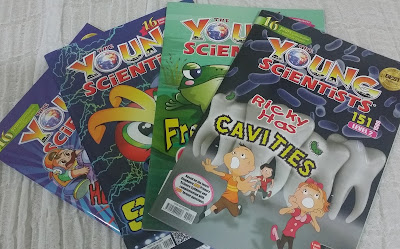Some parents believe that children
should not watch television or play computer games at all. For me, I find that
we should not take extremes. I think limited TV and computer time should be
imposed but not banned at all.
Before Wen went to nursery, he was allowed TV times only on weekends, around 10 minutes of viewing time each time. From Kindergarten to Primary 2, he is allowed TV viewing time of around 10 minutes daily.
DVD
One of my friends, Penny, introduced me to this “You can Read” DVD years back when my Wen was just a few months old. So, his learning journey begins at 7 months when he could sit and watch the DVD. Every weekend, I will let him watch the DVD. By the time, he was 18 months, he was able to recognize and read out all the words presented in the DVD.
Other DVDs he watched are “Words World” series. Phonics are learnt in a fun way. You can borrow this series from National Public Library.
Computer Time
There are weekly computer lessons in the school since Wen was in Primary One. So, I have to let him have some computer time in order to avoid receiving complains from this IT teacher. However this is restricted to 30 minutes on weekends only.
He enjoys creating slides using powerpoint. ( I am surprise that he learnt powerpoint in school at such a young age!)








